In nature, there is no such thing as opposite. The night is not the opposite of the day, as the light is not the opposite of dark. There are just different phenomena that exists in different shapes. Allow me to extrapolate this to links. When asked: “What is a natural link?”, the correct answer is:
A natural/organic link is not necessarily “the opposite of the unnatural link”. It is much more than that.
And although unnatural links are in fashion, maybe its time to put the spotlight on the organic links.

What is a Natural Link?
Natural links refer to those links that are put on websites without a direct intention of influencing the rankings of Google (at least from the POV of Google). These are called natural links because they haven’t been elicited in any way. As mentioned in the Webmaster Tools Help, Google considers to be a vote of confidence a link that page A makes to page B. These “votes”, usually, help your site rank higher in the search engine. The thing is that this vote, the link, has to be made naturally, meaning that you don’t have to influence in any way someone’s decision to link to you. Shortly, natural link building means that no explicit agreement to exchange or place links was done.
Natural Links are an investment that will pay dividends on the long term!
You might be stuffed with it, but let me illustrate the natural/unnatural dilemma with an example from politics. Elections are in full swing and you, the citizen, have to decide which mayor would be the best for your city. Your vote will be considered sincere and also legal only if your choice will be made solely because you agree with someone’s political agenda or you think that a certain person fits best the role of the mayor of your city. If a candidate or someone from his staff try to “buy” your vote with money or by offering you goods or services, that vote won’t be based on that candidate’s political qualities anymore, will it? That vote will not be relevant and might also bring some legal consequences. The same things apply when it comes to natural links. They need to be obtained organically, without anyone trying to manipulate the situation.

Natural Link Synonyms
Natural links may be found “in the wild” under the following names:
- organic links
- good links
- ok links
- high quality links
- Google friendly links
Why “Natural” & “Link” in the same phrase?
Talking about a “natural” link building strategy might sound like an oxymoron. As they first appear, links were all natural and even now, links are supposed to be natural, right? Yes, I feel the hand of reality slapping me, so allow me to rephrase that.
As the digital world got bigger and bigger, webmasters began to feel smaller and smaller. Site owners started to feel insignificant if not lost in the incredibly large web. The need to create link strategies that will speed up the process and put webmasters in their dream place, the search engines’ first page, increased proportionally with the digital world.
For someone to naturally click on the most relevant site for his search query would mean that he would know all the content from all the sites that exist.
Pretty utopian, isn’t it? How the “natural” process really goes is that users link to the most relevant sites they find from a predefined list of webpages. They don’t really give their vote of confidence to the site with the best content that there is but to the one that is most relevant to him from “the short list” of webpages which is available. With almost 80% of users clicking on links that they find on the very first page of a search engine’s responses, everybody wants to be on that list. Who designs those “short lists”? Algorithms do. The people behind those algorithms are continually seeking to improve their ability in identifying which sites are to be trusted and which not. The sites that appear on the “short list” may be the ones that know how to “dance” along with the ranking factors and not necessary the ones with the most relevant content for a certain matter.
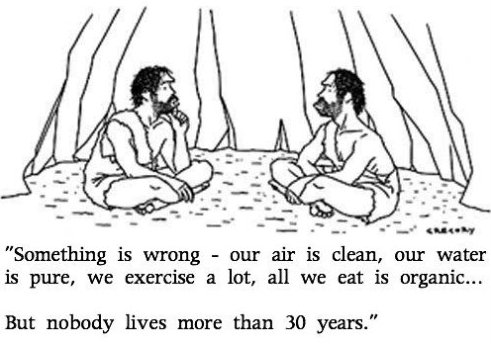
Google’s algorithm job is to spot signals of naturalness. The webmaster’s job is to act as natural as possible. But what happens when the algorithm changes? An action that was considered natural until then can pass as unnatural now. Huge amounts of money are being lost or won based on the algorithm’s rules. It’s a cycle that repeats every day, week, month, year. I think the Ralph Tegtmeier (aka @fantomaster) puts the finger on the problem in the following video:
Link Earning
The concept of link earning puts together all the qualitative efforts that a webmaster does in order to gain organic links. The key to this strategy might be crafting your content for your readership and not for Google. The new SEO context might oblige us to forget about link building and start focusing more and more on link earning.
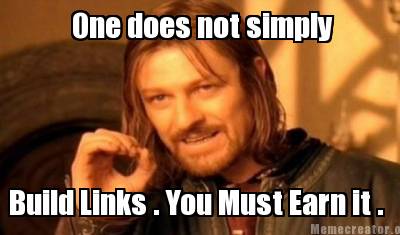
Here are some methods of earning links:
- Generate original information
A good place where you can put your effort into is original analysis and research. Netizens are more than glad to find out new, interesting things. If you really dig in to find something and you generate interesting facts, you are more likely to get links. We’re doing this a lot at cognitiveSEO, so, let the links come to us! 🙂 The good part with generating original research is that it is not just about linking, it is about sticking in someone’s mind or making a really big difference in a specific area.
You must create content that you yourself would go out of your way and read.
- Be active in social media
Think of where people spend most of their time. That’s right; on Facebook, Tweeter, Google+, etc. If your users spend 4 hours a day on facebook, maybe you should start spending some time there too. You don’t have to just wait for your possible customers to come to you, you may need to pay them a visit. Being active in social media can pay off in lots of ways, not just links. You get to know your target and you can also find new opportunities for your business.
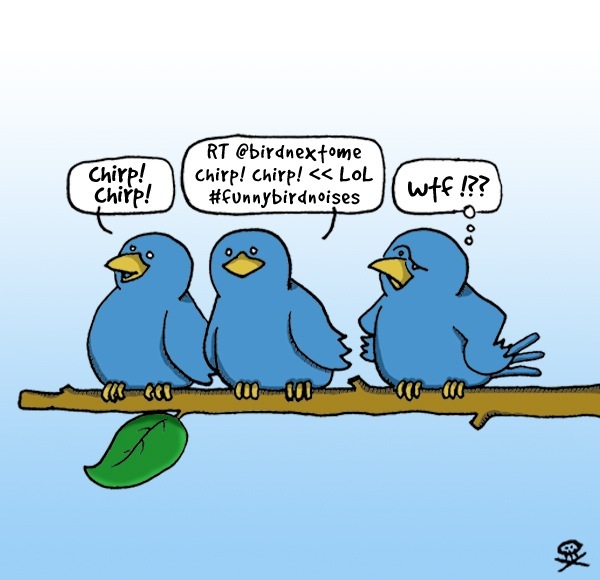
- Share your knowledge
Yes, “how to’s” and tutorials is what I am talking about. If you’ve managed to do something or you discovered how to make something faster or easier, you could help other people by making a tutorial about it. It will be highly appreciated in the online world. Even if you don’t get the pile of links you were hoping for, but you will bring exposure to your brand.
Content for the “Long tail ” only needs a couple of link to rank high.
As I mentioned before, sometimes it’s not just about the links; it’s about having a resource that no one else has. In the long run it will pay off.
- Community Building
Community building is a long term investment that will pay off on the long term.
You can obtain natural links from creating content that is not only relevant and useful but that will have the power to attract links from bloggers, people from forums, blog comments, etc.
- Answer Questions Online
I am talking about answering the many questions people have in the online world. On a forum, for instance, you can answer to a question about how to get rid of some spyware. If your answer will bring the solution or any added value, the community will appreciate. It is likely that they remember that you “saved” them in some situation and most likely they will reword you with a link. So, helping other people can be a big way to do it. Don’t expect to win the Nobel Peace Prize but you may expect an investment that will pay dividends on the long term.
- Offer a Free Service to Your Community
Run a service that people find really useful or something that improves others’ experience in the digital world. For instance, you can create a browser extension. I am sure that you are familiar with the AdBlock extension. This extension is an open source that generated millions of downloads and a pretty nice amount of money made from donations. As you can see, people are grateful and willing to pay off as long as their experience as a user is improved. What is great about offering a service is that you can do the work once and on the long term lots of people will pay you off in links.
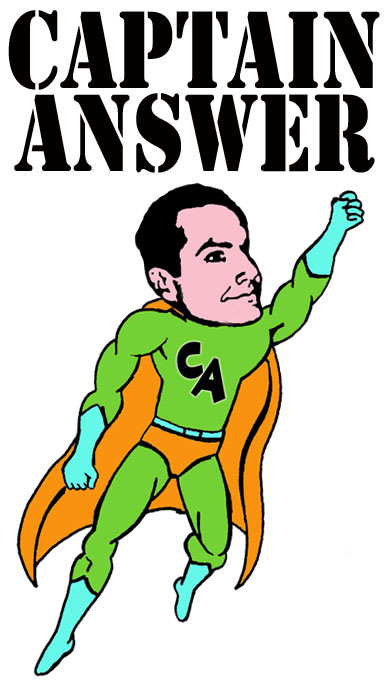
Techniques that Don’t Involve Great Content
It is hard to say that there are techniques that won’t rely great content. Let’s see, though, what we can find in this field:
- Controversy
You don’t have to be a tabloid to obtain buzz and links. You don’t have to make a profession out of gossiping or hating everybody either but some controversy might give you a boost of traffic now and then.
Done with measure, some controversy generates a lot of links but is not a long term strategy.
There will be a boost in the beginning but at some point, people will pay less and less attention to you. You don’t want to be like the boy that cried “wolf” and afterwards, no one believed him anymore. If you always get busy with saying “look at me, I am being loud, you have to pay a lot of attention to me”, you may irreparably lose your authority and credibility.
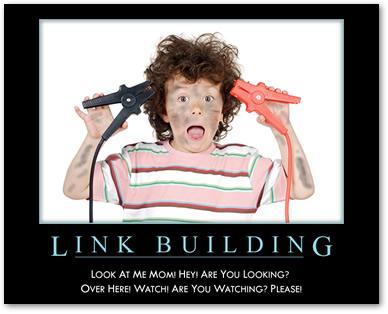
- Site Architecture
I know it may sound common but sometimes we tend to take for granted the little things. You have to make sure that your site has a good site architecture. What is the easiest way to find out? Answer to these questions: Can your site be crawled? Can your site be bookmarked? Can Google or the user get to all the pages on your site? If the answer to these questions is “no” or “I don’t know for sure”, you need to take a look at your site before doing anything else. If your site is broken your changes of being linked at are almost Zero.
- Offline Activities and Branding
Being hooked in the online world we often forget about the great opportunities that the offline world brings. If you forgot about outdoor and smart unconventional advertising and brand building, it’s a good time you bring them back into your playground.
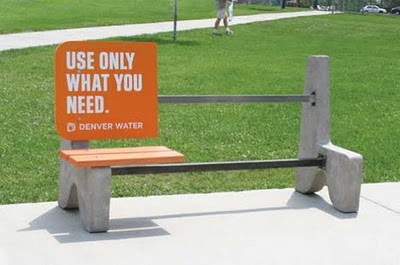
- Newsletters
Another way in which you can drive traffic, conversions and ultimately links are Newsletters. They might look a bit out of fashion but they still work. This way you make it easier for your public to have your information show up in their inbox and, therefore, easier to click on it.
Common Mistakes
You did everything by the book, but the results don’t look as you expected. So, what could have possible happened? I’ll list three common mistakes that may occur in the “link zone”.
1. You were too busy creating a link building strategy
Your job is not just creating a link building strategy. If your main activity will be focused on building links for search engines, you are cutting off a lot of avenues.
Before being preoccupied with how to get links, you have to build something really attractive, a reason why people would want to link to you.
After you managed that, don’t forget that there is more than the online world. There is a broader area of offline marketing out there that can bring you the links you wish for. You need to get rid of the tunnel vision focused on just links and start marketing your website without thinking about search engines but about your consumer instead.

You use the wrong keywords on your site.
For instance, you’ve just opened a great sushi restaurant in Manhattan. You don’t want to just say “sushi” but you want to include words like “where do I find the best sushi in Manhattan” etc, because it is very likely for people to search for “sushi manhattan”. Think about what the user is going to type and include those words on your page. You need to do a proper keyword research for your own site. Also, let’s say you have a car service shop. Post a list with all the services you have to offer on your site but not in a jpg or pdf format, but in plain text. Put your business hours on your page. It is very likely for people to look for a car service open till late and you might be the one who offers this service;
That piece of information can generate a link and, further on, a client.
You’ve messed up the title or the description of your page
You want to have something that people will actually click on when they see it on the search results.
What is your home page title? If, for instance, I am going to bookmark it, will I easily understand later what was really about or is the title not very suggestive? Also, your description will show up in the snippet and that synopsis can be a link generator or, on the contrary, a turn off for the user.
Conclusion
It is hard to tell whether a 100% natural link building strategy will get you on the first pages of the search engine in a favorable period of time. But one thing is for sure: while techniques and strategies come and go, organic links will always remain.
Everything you are doing is first of all for the audience and not for the search engines.
There is no (or shouldn’t be) such a thing as a manual on how to build links organically, or how to create the exact type of content that results in valuable links. There are some guidelines you need to follow and some directions you can track that can help you have a natural, worry- free link profile.
Photo credits: 1 2 3 4 5 6 7 8 9

 Site Explorer
Site Explorer Keyword tool
Keyword tool Google Algorithm Changes
Google Algorithm Changes

Leave a Reply!